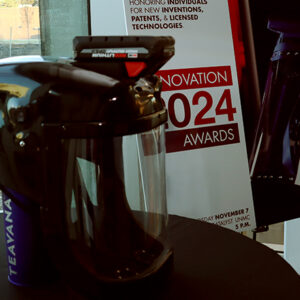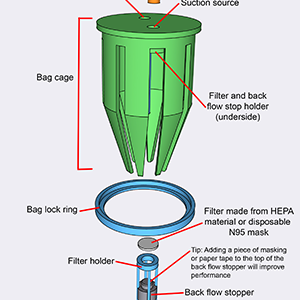
HOUSTON, Texas (February 14, 2024) — An innovative approach to treat Parkinson’s disease, pioneered at the University of Nebraska Medical Center, could reach patients within the next year as a part of a clinical trial.
Howard Gendelman, MD, and R. Lee Mosely, PhD, initially identified ld-IL-2 monotherapy — short for low dose interleukin-2 — as a potential treatment for Parkinson’s disease. At the same time, Coya Therapeutics was pioneering work with ld-IL-2 to target multiple neurodegenerative conditions, and had generated highly promising clinical data in ALS, and Alzheimer’s disease. The promising data generated by UNMC in Parkinson’s disease led to a licensing partnership with Coya.
UNMC experiments showed that ld-IL-2 can be particularly effective for use in patients suffering from Parkinson’s. In a recent publication, Drs. Gendelman and Mosely report that ld-IL-2 stimulates a robust anti-inflammatory response with regulatory T cells, or Tregs, which can protect brain cells from the kind of damage found in Parkinson’s.
In June of 2023, UNMC’s technology transfer office, UNeMed, licensed the intellectual property relating to the use of ld-IL-2 to Coya Therapeutics for further development and commercialization in Parkinson’s disease.
Dr. Gendelman extended the research with ld-IL2 to combination approaches with another cytokine, granulocyte macrophage-colony stimulating factor, or GM-CSF. GM-CSF is a potent immune modulator known to promote Treg activities and dampen pro-inflammatory responses. Preclinical data — generated by the Gendelman and Mosley laboratories — demonstrated that the combination of ld-IL-2 with GM-CSF resulted in a synergistic 4- to 6-fold increase in Tregs compared to treatments with either cytokine alone.
Earlier this month, UNeMed additionally licensed the use of ld-IL-2/GM-CSF to Coya Therapeutics for further development and commercialization in multiple inflammatory diseases, including neurodegenerative and autoimmune conditions.
“We believe that Treg dysfunction is the common thread that binds together many neurodegenerative diseases,” Coya Chief Business Officer, Arun Swaminathan, PhD, said in a recent press release. “These two licenses are based on strong preclinical animal data and builds upon the highly promising clinical data observed in ALS and AD, and expands the optionality that Coya has in strategic partnering discussions to execute on future clinical trials in Parkinson’s disease.”
Added UNeMed president and CEO, Michael Dixon, PhD: “We are incredibility excited about this partnership. Coya is in a great position to develop this new therapy, and bring it to the market where it can have a significantly positive impact on healthcare.”












[…] 3. Parkinson’s treatment licensed to COYA […]